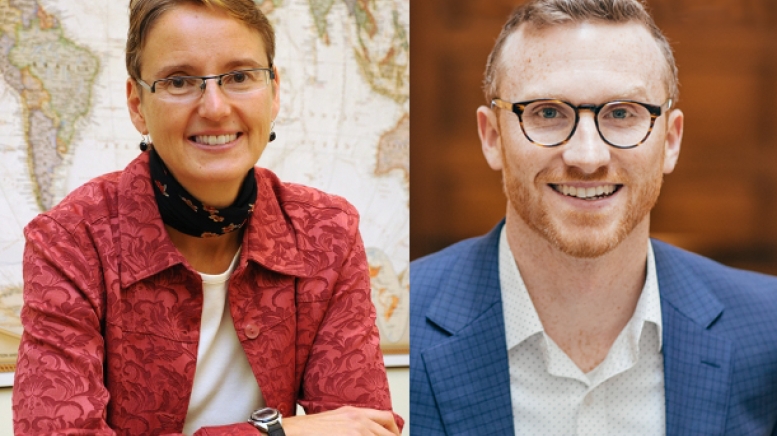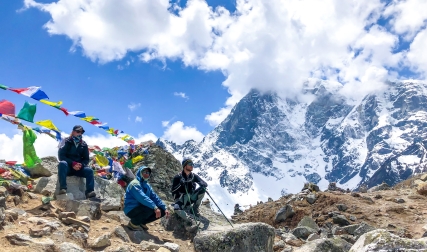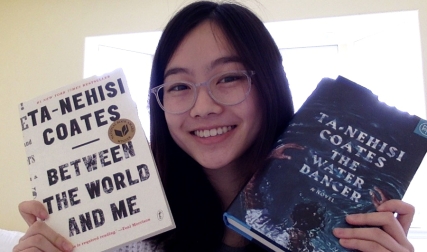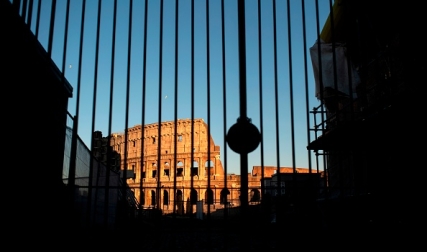Dartmouth’s coronavirus task force is co-chaired by Dr. Lisa Adams, DMS’90, director of global initiatives and an associate professor of medicine in the section of infectious disease and international health at the Geisel School of Medicine, and Josh Keniston, interim VP of campus services and vice president for institutional projects. DAM recently connected with the pair to discuss—via Zoom—the continuing crisis.
How are you?
LA: I recently heard someone say, “Oh, I’m pandemic good,” and I think that applies. We’re “pandemic fine.”
Are you self-isolating at home?
JK: For the most part. There are occasions when I need to be on campus. We still have about 250 students there, and we have faculty who are still on campus to prepare for remote learning.
LA: I’m pretty much able to stay at home. I set up my own incident command in the living room.
How did you find yourselves so lucky to be appointed to the task force?
JK: We were “volun-told,” I think. [Laughs] My role with campus services means I oversee on a day-to-day basis a lot of the operational things that are impacted by this. It seems like years ago now, but when the task force was stood up, Joe Helble, the provost, was looking at the key things we’re going to need to understand as this evolves. So my role is to coordinate the operational stuff, and Lisa keeps us tapped in on the healthcare side.
LA: I’m the one trying to follow the epidemiology and students who may need to self-quarantine because they’ve been exposed or because of recent travel or self-isolate because they’re ill. I’ve been working with the College health services team in managing those patients as well. Occasionally I’m the link to Dartmouth-Hitchcock hospital and the N.H. Health Department.
What’s your mission?
JK: Early on we adopted a clear charge. At the top of that list is the health and safety of our community. And then there are specifics beyond that. I think that when you’re not in a crisis situation, there can be a lack of clarity on goals. But right now we all have this crystal-clear goal, which is the health and safety of our community and making sure that we remain resilient and true to our core mission and values. Most of our discussions are not, “I disagree with the intention of what you’re doing,” but more, “Wait, did you think about this group of two or 300 people who experienced this differently and are we making a decision that’s going to work for them as well?”
LA: Initially our questions centered on travel and making sure we either discouraged or prohibited, as we moved down the severity line, first international travel, then domestic travel, and dealing with our student and faculty who were overseas. It was all about who was being let back in the country and then bringing home people as we saw the pandemic spread through Europe. Then we started to examine questions about academic and workplace continuity and recommendations about campus events.
It sounds as though your portfolio continues to expand.
LA: Absolutely.
JK: We’re working with the senior administration—the provost, the president, our executive vice president—to say, “Here’s what we see coming and, based on that, we think we need XYZ.”
How does the task force operate?
LA: We have a core group that meets every day at 10 a.m. via Zoom. Sometimes Josh and I are meeting with the provost before or after that, and then we have a standing meeting for the larger task force at noon every day. These are all done remotely now, since March 11 or 12. We were meeting in person for the first 10 days of March.
How would you characterize the nature of your meetings?
LA: They’re going exceptionally well. We have complementary strengths, so I feel we have the right people. We have discussions and people express opinions. It’s been easier than I’ve seen in other settings for us to achieve a sense of consensus, make a recommendation, and move it forward.
Your job is to present recommendations to the provost?
LA: Yes. He says he will always consider our recommendations quite heavily, but he is an independent decision-maker. He has to ask all the devil’s advocate questions that are going to come up. It’s a good process because it really pushes us to justify and support our recommendations.
Did the task force have anything to do with the decision to charge full tuition this coming term?
JK: There is a working group on the task force that looks at financial pieces. Ultimately, they looked at it and decided the average cost to educate our students is higher than the tuition Dartmouth charges. They also decided not to charge for room and board and to discount fees.
LA: We also did a review of several of our Ivy peers and other schools and none of them were discounting. I know that was another consideration in the decision.
What do you think are the prospects for reunions, Commencement, and the summer term?
JK: Our focus has been on making sure that the spring term is going to be an experience that is worthy of full tuition. The IT groups have really been all out on that. Soon we’ll turn our attention to some of these other things more fully. There are groups that have been analyzing options.”
Lisa, when did the novel coronavirus first hit your radar screen?
LA: Because of my global health focus, pretty early on in December. I am director of Dartmouth’s Center for Global Health Equity, and one of my board members is Dr. Dan Lucey ’77, DMS’81, who is based in D.C., affiliated with Georgetown, and on the front lines of every pandemic. He’s dealt with SARS, Ebola, and for different organizations, sometimes sent by WHO, sometimes sent by different NGOs. He brought it to my attention.
Did you ever think we would get to this point?
LA: That’s a good question. I think as things were unfolding—in January, right?—that’s when we really knew that this was coming our way. The question at that point was, who do we have from China on our campus? Because it was really just China at the time.
If the federal government decides that certain counties are less problematic than others and deems Grafton County safe sometime in mid-April, will it impact your decision-making?
LA: We are closely following CDC guidance and the N.H. Health Department guidance, which sometimes is a bit more conservative than the CDC. We can always, as an institution, have more conservative recommendations. New Hampshire is still in an exponential-growth phase, where we think the doubling time of the virus is roughly every six days. Whatever the White House says, I place great hope in having Dr. Tony Fauci out there. He’s someone I’ve known for many years, and I’m glad he’s becoming a household name, such a voice of reason and wisdom in this situation. We know if we loosen up all these non-pharmaceutical interventions—these grassroots, public-health interventions of social distancing and limiting gatherings and keeping the schools closed—if we lift those too quickly, we know [the virus] will just rebound.
JK: Dartmouth’s home base may be in Hanover, but we are a global organization. We have visiting professors coming and going, we have students from around the world, and so we have to not just look at what is happening in Grafton County, but we also have to look at this on a slightly more global scale.
What kind of feedback has the task force received?
LA: I get the occasional emails from colleagues saying, “Great work, love getting your messages,” which is very much appreciated, of course, and I always write back to those. And, of course, we’re hearing when people are unhappy as well. Sometimes it’s, “Have you considered this?” or “Could the task force think about that?” I love the feedback and any constructive criticism. And we know that when you’re in this kind of a public role, you can’t please everyone all the time.
JK: I think a lot of the stuff that’s not positive is about people feeling uncomfortable about the uncertainty. A lot of the frustration that’s directed toward us is, “Tell me what’s going to happen. Tell me what’s next.” Those are understandable and human responses. And one of the things we’ve tried to be clear about in our communications is, “Here’s what we know and here’s what decision we’re making. This is going to change in the coming week. We’re going to have more. Here’s what we’re working on, here’s what we don’t know, and stay tuned.” Sometimes that’s not always satisfying, but, unfortunately, it’s how this is playing out.
To outsiders, your announcement that employees would not be charged for parking this spring might have seemed odd, but you know your audience well.
JK: We knew from day one that we were going to have to pay attention to the parking situation. [Laughs]
Are you dealing well with remote meetings?
JK: When we can get the video piece to work. It is really helpful to see people’s faces. You can see whether people are getting things or not. I try to play the role of emcee. People are using the raise-your-hand function, making sure that we’re creating space for people to get their voices heard. And when we make big decisions we try and take a pause and say, “Did we miss anyone’s voice? What do we need to hear?” You just need a little bit more rigor around the kind of management of the meetings.
LA: I’ve seen a curve, where it was maybe a little more stilted in the beginning. Now we’ve got a really good rhythm. There aren’t the awkward pauses where people are waiting and then two people speak at once. I feel like we’ve got it down now.
Who’s with you as you self-isolate?
JK: Just my husband. We have a pretty small place, so we’re getting very close. We got married just this past August, so we’re still in the honeymoon phase.
LA: My husband ventures out in the world for us—we just made him the designated shopper. My son was on a study-abroad program in the United Kingdom and came home two weeks ago.
How do you personally deal with the stress, the fear, this crisis has induced?
JK: Part of what draws people like me to Dartmouth is this beautiful setting. Luckily, we have not been restricted from going outside, so finding places to go for walks and hikes has been important for me.
LA: Yes, solo walks and hikes are definitely why we all live here. And to be able to participate in the wonderful beauty that’s right outside our backyards is phenomenal. It’s also mud season, so it’s not a bad time to be sequestered indoors. The task force has also become this incredible team now, and something we all feel part of and a support group for us as well. I can’t imagine a nicer, more competent group of people to go through a pandemic with.
Is it safe to assume that you have not yet had any “quarantini” parties on Zoom?
LA: Not yet.
JK: We’ve talked about it, though.
LA: We’re planning a very big one when this is all over.
Any closing thoughts?
LA: This is really a chance for us all to come together. And really, for the most part, this is so Dartmouth, right? The fact that I heard about the virus first from a Dartmouth alum. There’s that Dartmouth network at work. I think the way the community has taken care of one another has just been really impressive, and I’ve appreciated learning about all these different pockets within the institution that I wasn’t familiar with. It’s an incredible place to work, and I think it would be an incredible place to be a student. That’s been reinforced through all of the late nights and early mornings slogging through stuff.
JK: When I’m not serving as a co-chair for a public health crisis, one of the things I’m doing for Dartmouth is looking at our energy future. And one of the things we talk about in energy is resiliency. I think what has become so clear in all of this is that Dartmouth is a resilient community. As we look at what we’re doing and the challenges that we face, I have absolute faith that we are resilient and we will come through this together and we’ll be better for it.




